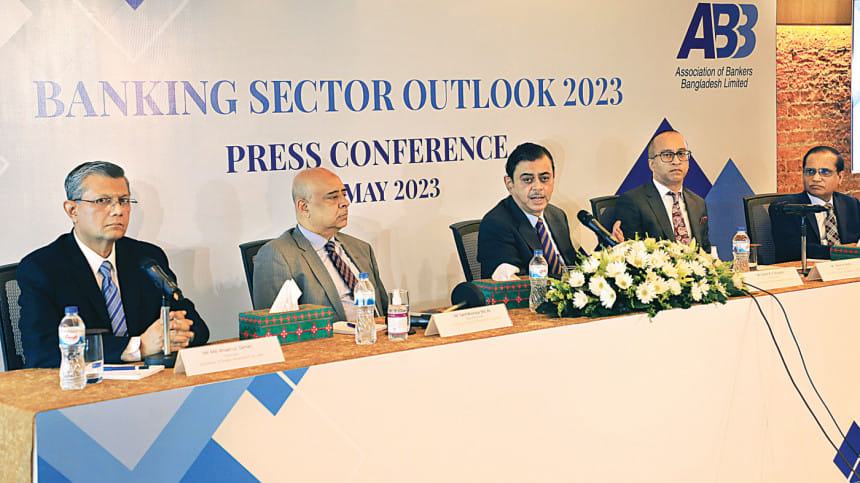Banks alone can’t tackle NPLs

The banking sector alone can't tackle the challenge of the higher non-performing loans (NPLs) given the severity of the issue, said the Association of Bankers, Bangladesh (ABB) yesterday.
"The issue of defaulted loans has become a major challenge for the banking sector in recent times," said Selim RF Hussain, the chairman of the platform, which represents the chief executives of all banks in the country.
"The central bank and commercial banks can't resolve the problems stemming from defaulted loans if the whole country and society do not take concerted efforts to this end."
He made the comments at a press conference on "Bangladesh Banking Sector Outlook 2023" at the head office of Brac Bank in the capital.
Hussain said rules had been relaxed in the banking sector in the last four to five years, particularly since 2019, as the finance ministry had thought that large borrowers would repay bad debts thanks to the flexible policies.
"But it was found after four years that the relaxed policies have not paid off."
Hussain said he had recently had a discussion with the central bank governor where he also agreed that global best practices should be followed to arrest NPLs.
Default loans in the banking sector increased 16.8 per cent year-on-year to Tk 120,656 crore in 2022.
The ratio of the default loans accounted for 8.16 per cent of the outstanding loans given out by banks as of December last year, up from 7.93 per cent a year ago, data from the Bangladesh Bank showed.
The extent of troubled assets is obscured by lax regulatory definitions and reporting standards, extended forbearance, as well as weak supervisory enforcement, according to the World Bank.
Published NPL statistics do not reflect internationally accepted definitions of non-performing exposures, it said.
"It is not possible to resolve the NPL problem overnight. It will take time," said Hussain, also the managing director of Brac Bank.
"We should have a big social commitment and must invest hugely to improve the legal framework for NPL resolutions. We need many more courts and concerned officials and special training for them."
According to the ABB chief, many businesses usually secure stay orders from courts to have their NPLs treated as unclassified loans.
"Businesses show the NPLs as regular loans years after years based on the stay orders. The banking sector can't deal with this sort of situation."
Hussain also admitted that there is a lack of corporate governance in the banking sector.
In Bangladesh, the banking sector has flourished in the last 30-40 years but this advancement has been different from many other countries.
"The ownership in the banking sector has come from private and business houses. This is not the case in India and many other countries," Hussain said.
"It is not possible to change the structure overnight."
He said a major reform is required to ensure corporate governance and get rid of the NPL problem.
Hussain said banks carry out their business based on public trust.
"Some banks faced problems last year, but they have almost come out of the situation and have settled depositors' claims successfully," he said.
The issue of the exchange rate volatility also came up during the event. The taka has fallen by more than 25 per cent against the dollar within a year due to the commodity price hike in the global market.
"This created a stress in the macroeconomy last year that we did not see in our entire career. A good number of banks failed to settle import payments on time last year," Hussain said.
"But things are improving now and a majority of lenders are not facing such a problem currently."
Mashrur Arefin, managing director of The City Bank, said that both the trade gap and the deficit in the current account have declined considerably, giving a breathing space to the economy.
"But the deficit in the financial account has widened. The gap will narrow in the days to come as multilateral lenders are disbursing a good amount of funds."
Md Ahsan-uz Zaman, managing director of Midland Bank, said the liquidity situation has improved recently.
Syed Waseque Md Ali, managing director of First Security Islami Bank, and Abul Kashem Md Shirin, managing director of Dutch-Bangla Bank, also spoke.

 For all latest news, follow The Daily Star's Google News channel.
For all latest news, follow The Daily Star's Google News channel. 



Comments